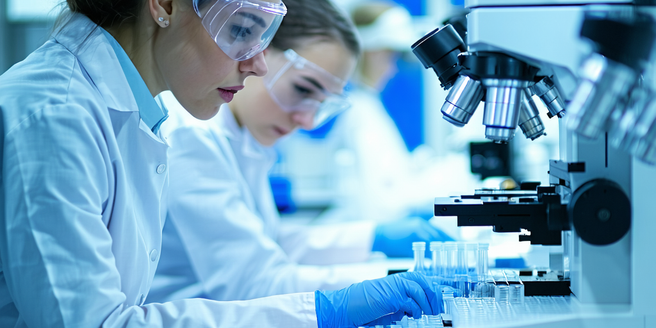Biotechnology And Human Health

Introduction to Biotechnology in Healthcare
Biotechnology is revolutionizing healthcare by providing innovative solutions to diagnose, treat, and prevent disease. Through the use of cellular and biomolecular processes, biotechnology enables the development of novel drugs, more accurate and efficient diagnostic tests, and regenerative therapies. In healthcare, biotechnology is pivotal in areas such as genetic testing, which allows for early detection of genetic disorders and predispositions, and in the development of personalized medicine tailored to individual genetic profiles. Techniques such as CRISPR have further propelled advancement by offering precise tools for gene editing. As biotechnology continues to evolve, it holds the promise to address some of healthcare’s most pressing challenges, including providing effective treatments for previously incurable diseases and improving overall health outcomes globally.
The Role of Genetic Engineering in Modern Medicine
Genetic engineering, a cornerstone of biotechnology, plays a crucial role in modern medicine by enabling the alteration of genetic material to cure or prevent diseases. Techniques like CRISPR-Cas9 allow precise editing of genes, which opens up possibilities for correcting mutations that cause genetic disorders. Such advancements have led to the development of gene therapies that target specific diseases at their genetic source, offering personalized and potentially curative treatment options. Moreover, genetic engineering contributes to the production of insulin, growth hormones, and other vital biopharmaceuticals. As researchers continue to explore the potential of genetic manipulation, the promise of curing genetic diseases and significantly improving patient outcomes becomes increasingly attainable, marking a significant milestone in the evolution of medical treatments.
Biotechnology Innovations in Disease Prevention
Biotechnology has made significant strides in disease prevention, particularly through the development of vaccines and early diagnostic tools. Vaccines, a cornerstone of preventative medicine, have seen improvements in efficacy and safety due to biotechnology, leading to better protection against viral diseases like influenza and updated vaccines for emerging threats. Furthermore, biotechnology aids in the creation of rapid diagnostic tests that can detect diseases at an early stage, allowing for prompt intervention and reducing the risk of spread. By leveraging biotechnological advances, researchers can engineer microbes to produce vaccines and therapies that target disease-causing pathogens. The ongoing innovation in biotechnological approaches is crucial for enhancing global health, preventing widespread disease outbreaks, and enabling quicker responses to public health emergencies.
Impact of Biotechnology on Personalized Medicine
The advent of biotechnology has heralded a new era in personalized medicine, offering tailored healthcare solutions based on individual genetic profiles. With the ability to analyze a patient’s unique genetic makeup, personalized medicine allows for the customization of treatment plans to improve efficacy and reduce side effects. Biotechnology enables this precision by using techniques such as genetic sequencing and biomarker identification to gain insights into how different individuals may respond to specific therapies. This shift from a one-size-fits-all approach to a personalized treatment paradigm not only enhances treatment success but also optimizes healthcare resources by reducing trial and error in drug prescriptions. As biotechnology continues to evolve, personalized medicine is set to redefine how diseases are diagnosed and treated.
Ethical Considerations in Biotech Advancements
With the rapid advancements in biotechnology, ethical considerations have become increasingly important to address. Questions surrounding genetic privacy, consent, and the potential for misuse of biotechnological innovations warrant careful examination. The capacity to alter human DNA presents significant ethical dilemmas, especially concerning the boundaries of human enhancement Vs. therapeutic applications. Ensuring equitable access to biotechnological advancements is also a critical issue, highlighting the need for policies that consider fair distribution of biotechnology’s benefits globally. Moreover, the ethical implications of gene editing technologies bring about concerns related to potential unintended consequences and the long-term impact on genetic diversity. As biotechnology advances, fostering ethical discourse and establishing stringent guidelines will be paramount to navigating these complex issues responsibly.
Future Trends in Biotechnology and Health
Looking ahead, biotechnology is poised to revolutionize health with transformative trends such as AI-driven drug discovery, advanced gene editing, and regenerative medicine. Artificial intelligence is being integrated into biotechnology to streamline the drug discovery process by predicting which compounds will effectively target specific diseases, reducing time and costs. Breakthroughs in gene editing, specifically with technologies like CRISPR, continue to pave the way for new treatments and cures. Regenerative medicine, utilizing stem cells and tissue engineering, is advancing toward repairing and replacing damaged tissues and organs. As these technologies mature, they hold the promise of unprecedented advancements in disease treatment and prevention. Embracing these future trends responsibly will be essential in maximizing their potential to enhance human health on a global scale.